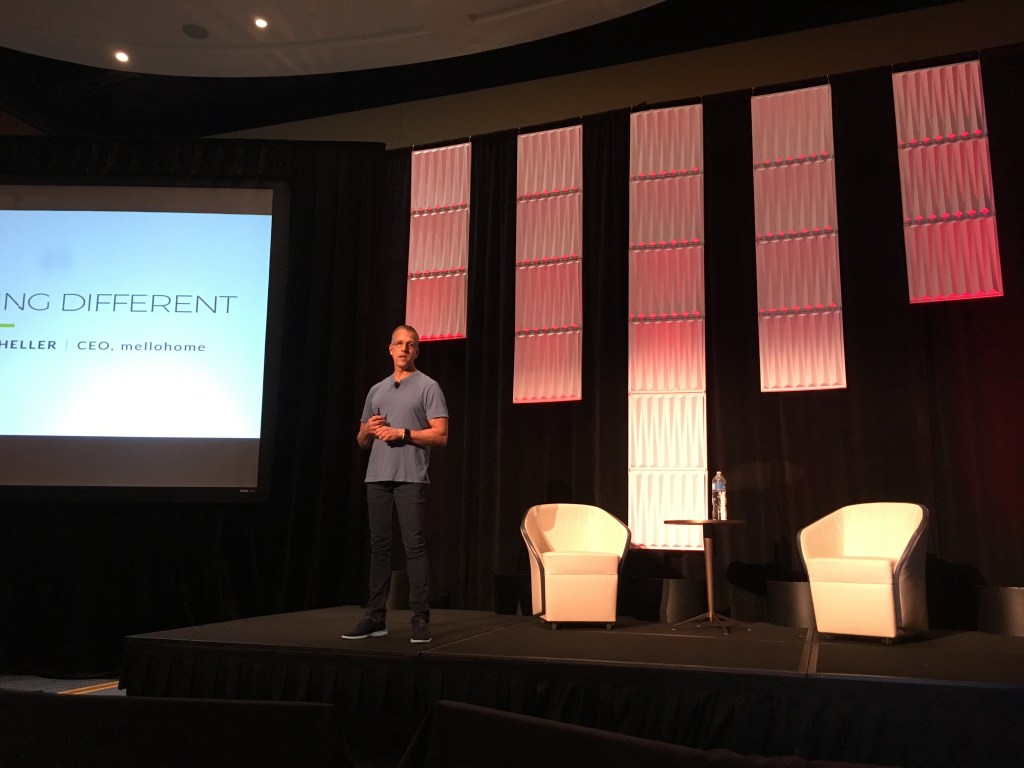CEO of mellohome Chris Heller kicked off HousingWire’s engage.marketing conference with a keynote on disruption in the mortgage and real estate industry.
Heller told the crowd of over 100 that disruption is not about “doing more better,” it’s about “doing things different.”
According to him, there are three factors that have flipped the mortgage and real estate industries inside out and upside down.
- New business models
- Economic pressures
- Convergence of real estate and mortgage business
Together, these factors have changed the way mortgage business is done and brought about a period of disruption that is still very much in effect. Heller explained the situation and laid out some strategies for coming out on top of the tumult.
Whereas a decade ago, the real estate agent was at the center of home transactions, now customers are at the center of everything.
Heller touched on the "Amazon effect" and how customers are demanding convenience and simplicity in their home buying–and owning–experiences.
This has created a convergence of the real estate and mortgage industries with industry titans like Zillow and Redfin racing to gobble up complementary businesses to create one-stop-shops for their customers.
According to a third-party survey Heller cited, the majority of online purchase leads do not have a real estate agent attached to them. This means that whereas in the past real estate agents controlled the sales funnel, now mortgage companies are at the top of the funnel, in control of the transaction flow since they are the first to come into contact with potential buyers.
“For mortgage companies, customer acquisition now takes place at the very top of the funnel and is almost always controlled by the customers desire for a quicker, easier, cohesive experience,” Heller said.
“Because of the service convergence one-stop-shops are now possible for customers with any level of experience or buying-savvy. Once the customer is in the sales funnel, when properly nurtured and given technology that exceeds their expectations, they are very unlikely to fall out of [the funnel], which is the perfect scenario, not only for the consumer but for the lender,” he added.
The dark side of this trend toward convergence is that it is the result of market conditions that have made it very difficult to compete in the market at the highest levels without a lot of capital and a lot of capability, technological and otherwise.
Purchase mortgage volumes are low, and refinancing applications are practically non-existent thanks to high interest rates and strained housing affordability across the nation.
To succeed in today’s industry Heller said companies need to ask themselves a couple of questions: Do you have what it takes to deliver what customers want (one-stop-shop, smooth tech, convenience, impeccable service)? And if not, should you focus on a niche you can master?
Heller said not everyone is going to be able to make it as a Zillow, Keller Williams or mellohome in the market and that some companies need to take an honest look at their business models and decide whether or not to go down the one-stop-shop path or focus on a niche and corner that market.
“Not everyone is loanDepot or Quicken or mellohome or Amazon. If you’re going for the whole model, it requires serious capital and time. Many in the industry need to get real about whether they’re playing the game at that level. And if not, I think the question is can you or should you compete, or should you focus on a niche or your strength?” Heller said.





